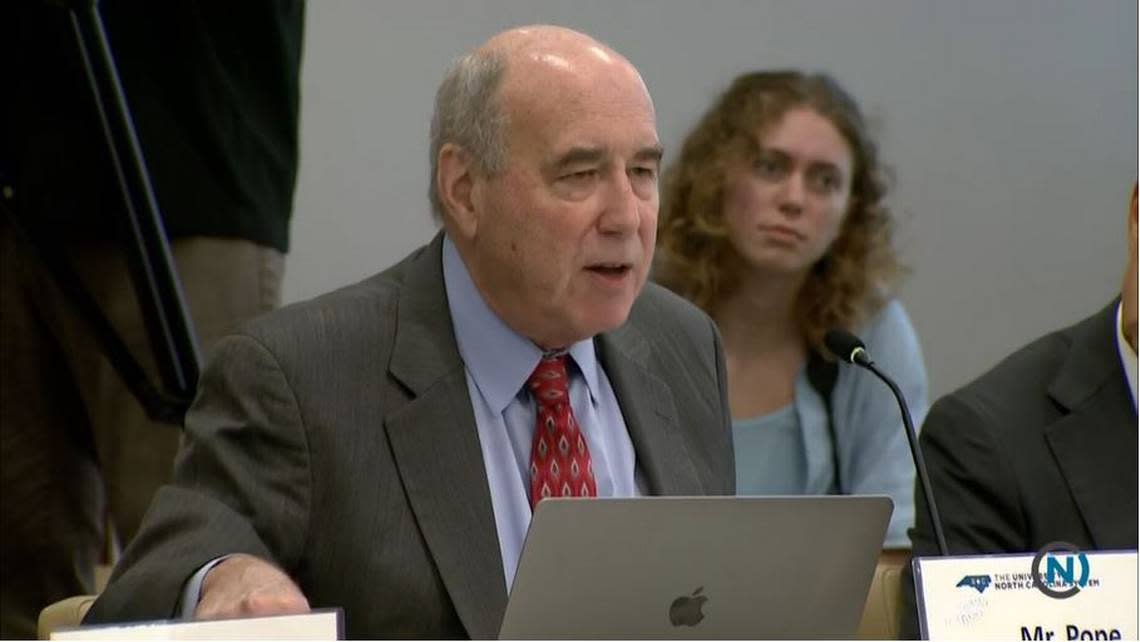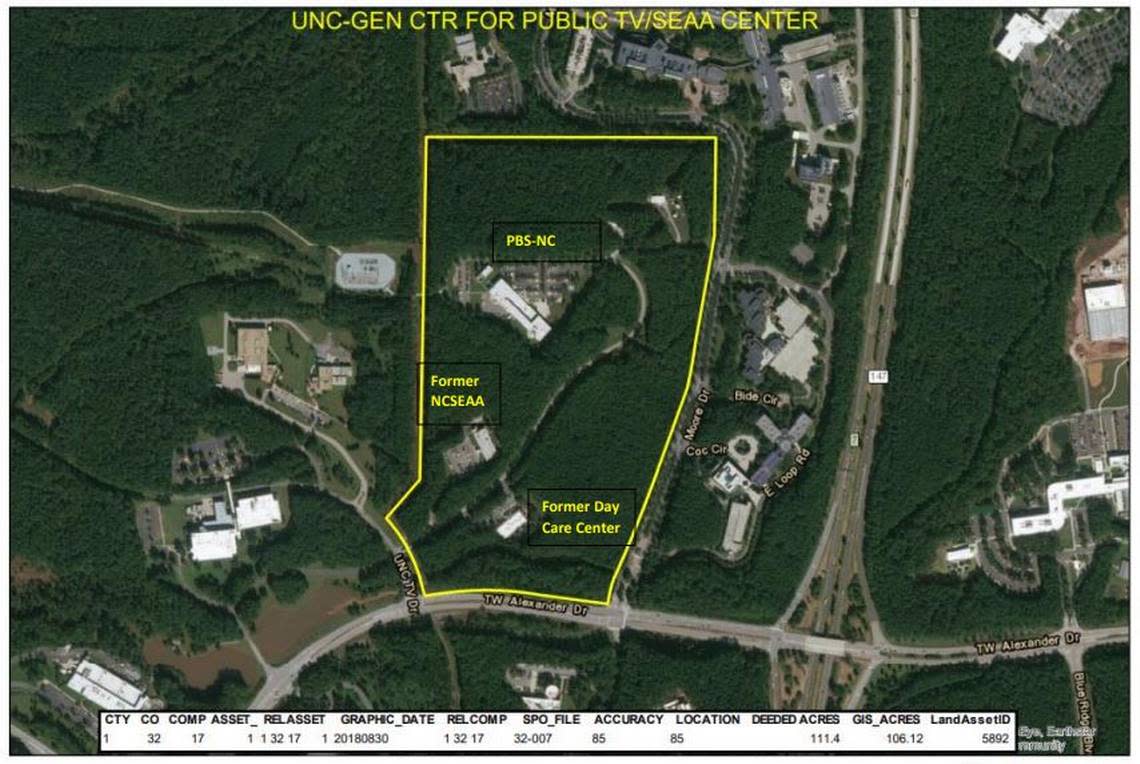After debate, UNC System board votes to keep increased student fee for campus security
The UNC System Board of Governors approved a student fee for campus security services, expanded the system office property, added new academic programs and approved university construction projects at its meeting Thursday.
The $60 student fee prompted the most discussion, as board members debated where the money to maintain campus safety services should come from — the students, the institutions or the state legislature.
The revenue from the fee will go toward:
▪ campus police officer and telecommunicator salaries.
▪ highly qualified and trained investigators and hearing officers for reports of serious offenses, including sexual violence.
▪ safety and security training, coordination and audit functions.
▪ substance abuse counseling services.
▪ suicide counseling, prevention, intervention and crisis response.
▪ Title IX and Clery Act compliance coordination.

The UNC System receives a $4 portion of the fee for systemwide services and training, including the UNC Public Safety Training Center at Samarcand in Moore County.
The system expects this fee to bring in $13 million this fiscal year to supplement state funds for campus safety departments. The departments receive about $80 million annually in total through the state budget and tuition.
Who should pay for campus security services?
In March 2021, the board increased the campus security fee from $30 to $60 for schools to implement by this academic year. The need for the increase is to improve services and training and to pay campus law enforcement officers and emergency telecommunication staff market rates.
Student leaders have raised concerns about the necessity of the fee increase, particularly in light of racial justice protests that have called for reduced police presence.
And some board members agree that campus safety departments should not be funded by the students.
Board member Art Pope introduced a motion to take away the student fee and put the responsibility on campuses to reallocate funds to support these costs. He argued that public safety and mental health services are necessary, and campuses should prioritize this cost as they begin setting their budgets for next year.

Pope and board member Terry Hutchens also noted the financial burden on families from inflation and declining enrollment challenges in opposing the student fee.
Board member David Powers said institutions are also feeling the effects of inflation and suggested that the request for the funding be directed to the state legislature.
Board member Jim Holmes introduced a substitute motion to keep the $60 fee and require campuses to fully fund campus security budgets at current levels through the next fiscal year. That motion passed.
With the fee set, campuses can develop their 2023-24 fee proposals and all-funds budgets.
Setting tuition and fees
The board’s budget and finance committee also discussed instructions for campuses in setting tuition and fees for the 2023-24 academic year.
Campuses would not be allowed to increase tuition for undergraduates from North Carolina, but can raise the price for out-of-state undergraduates and all graduate students under the proposed guidelines.
Universities can consider raising mandatory fees because of inflation but such increases are capped at 3%. They can propose increases for existing special fees for inflation or new special fees for new academic programs.
The Board of Governors sets tuition and fee guidelines for campuses to work within as they develop rates for the following academic year. Campus trustees set the universities’ tuition and fees each fall, and those proposals are reviewed and approved by the Board of Governors in the spring.
UNC System expansion
The board approved the expansion of the UNC Systems’ millennial campus at Research Triangle Park on T.W. Alexander Road in Durham.
The 111-acre property is home to PBS-NC and two vacant structures — the former North Carolina State Education Assistance Authority building and the former Bright Horizons day care center.
The millennial campus also includes Gateway Research Park–North Campus in Brown Summit, Gateway Research Park–South Campus in Greensboro and the Spangler Complex in Chapel Hill.

Creating and discontinuing academic programs
The board approved the establishment of the Bachelor of Science in Music Technology at N.C. State University and the Bachelor of Science in Human Health Sciences at UNC Greensboro.
The Master’s in Agricultural and Resource Economics, Master’s in Mechanical Engineering, Master of Education in Educational Administration and Supervision and Master of Science in Educational Administration and Supervision will be discontinued.
Lab schools
Two of the UNC System’s early laboratory schools were renewed for another five years. The grade schools were established as a partnership between local school districts and the UNC System to improve student performance and train new teachers and principals in under-served areas.
The board approved Appalachian State University’s Academy at Middle Fork in Forsyth County and UNC Wilmington’s D.C. Virgo Preparatory Academy in New Hanover County.
Three new schools also opened this year, bringing the total to nine laboratory schools across the state. App State’s Academy at Elkin, North Carolina A&T’s Aggie Academy and UNC-Chapel Hill’s Carolina Community Academy welcomed their first students this fall.
The board’s next regularly scheduled meeting is October 19-20 at the UNC System Office in Chapel Hill.
